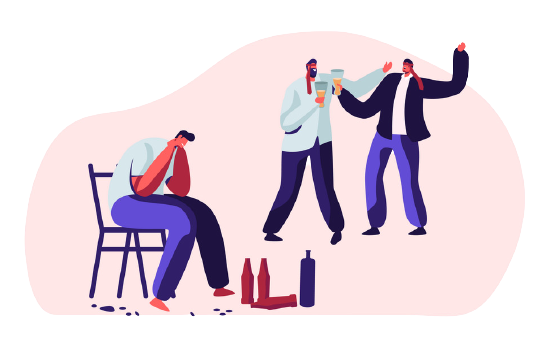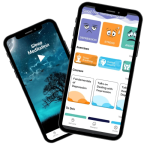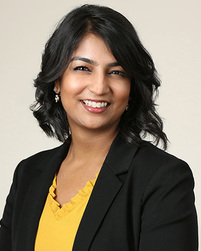Online Addiction Counseling | Best therapist for Addiction Help
- Set up a free & confidential chat on your A addiction issues
- Unlimited help through Addiction counseling app
- Live Video or Chat sessions with top Addiction counseling therapists
Begin Therapy
Consult online with best Therapist
Get the best help for Addiction Consulting
TherapyMantra is here to help you on your path to Addiction Consulting. We match you with the best Addiction consulting therapists available 24/7 via video call or messages.
Match with Addiction Counseling Therapists
We assign the best counselors experienced in Addiction issues based on your needs.
Affordable and Effective
Our online sessions are 90% less expensive than in-person therapy, available 24/7.
Self-Care for Addiction
We offer ongoing support through self-care tools, Addiction Counseling help videos, chat groups, meditations, breathing exercises, and other resources.

Wondering if it’s just a phase or something more? Take our Free online Addiction Counseling test to find out?
How it works?
You are matched with an Addiction counselor based on your needs and preferences. You get a secure “therapy room” where you can communicate with your counselor via chat or phone. You can write or talk about Addiction & ask questions to deal with Addiction.

Register for Addiction Counseling
Simply complete a 5-minute online form to tell us about your Addiction issues

Consult with your Addiction Counselor
We connect you with Addiction Counselors who are available 24/7 based on your preferences and needs.

Connect to Our App
Apart from Video/chat sessions, our app offers self-care tools, videos, and meditations to help you deal with your addiction issues.
Best Addiction Counselors
Positive conversations, exercises, and meditations are used by TherapyMantra psychologists to help you deal with Addiction issues. Our Addiction counselors outperform traditional counseling as you get matched from a pool of 500+ Addiction counselors, who offer 24/7 unrestricted private chat.








What Is Addiction?
Addiction is an overwhelming compulsion to continue using a substance or engaging in an activity, despite the devastating effects it may be having on one’s life. Addiction affects not only the addict but their friends, family, and loved ones as well.
The destructive cycle of addiction can be difficult to break without help. Fortunately, there are several different treatment options available that can help addicts recover from their addiction and rebuild their lives.
Addiction is a complex condition that affects brain function and behavior. It is characterized by compulsive drug seeking and use, despite harmful consequences. Addiction arises from repeated exposure to addictive substances or behaviors.
Different Types Of Addiction
Despite many being in denial, every person is an addict. Even if it’s just about having a little bit of fun, there are some who become addicted to this feeling. While some might not consider themselves addicts when it comes to certain things, it’s easy enough to figure out whether someone has a problem with that particular thing or not.
- Drug addiction is one of the most difficult addictions to overcome because the person is addicted to the feeling that the drug gives them. This high can be very addictive and some people become so obsessed with it that they’ll do anything to get their hands on the drug.
- Alcohol addiction is also very common. This addiction is easier to overcome because the person has control over their intake. Although drinking alcohol in large quantities can be dangerous and even life-threatening, it does not mean that everyone who drinks a little every day is an alcoholic.
- Of course, there are many other addictions such as gambling and sex addiction which can sometimes occur together in the same person.
- There are also addictions that come in forms other than physical ones such as emotional addiction to the image or have almost everything revolve around your work.
Different Treatment Options For Addiction
There are many different types of addiction treatment available such as
- Inpatient Treatment is a type of addiction treatment that requires you to live at the rehab center for the duration of your treatment. The benefit of this type of treatment is that you will not be using drugs or alcohol while you are there, and the environment is highly supportive of your sobriety.
- Outpatient Treatment is a less-intensive form of addiction treatment that allows you to live at home while receiving treatment. This type of treatment usually involves meeting with a counselor or therapist several times per week and attending group therapy sessions in the evenings.
- Medication-Assisted Treatment (MAT) is a type of addiction treatment that uses medications to help people overcome their addiction. There are three types of medications used in MAT:
- Methadone
- Buprenorphine
- Naltrexone
How Can Therapy Help With Addiction?
Therapy can help addicted individuals in a number of ways.
First, therapy can help people to understand the addiction and why it developed. This understanding can be very helpful in developing a treatment plan that is specific to the individual.
Second, therapy can provide addicts with support and motivation to stick to their treatment plan. This support can be invaluable in helping people to overcome their addiction.
Third, therapy can help addicts learn how to cope with difficult emotions and situations without using drugs or alcohol.
Finally, therapy can provide addicts with a safe place to discuss their addiction and any other issues that may be causing them stress.
Therapy options for addiction
There are many types of addiction therapy available:
- Cognitive Behavioral Therapy (CBT) – A type of counseling that focuses on helping the individual to recognize the connection between thoughts, feelings, and behaviors. CBT is used to help change addictive thinking and behavior as well as manage stress.
- Motivational Interviewing (MI) – a goal-oriented, person-centered form of communication designed to support intrinsic motivation to change by exploring and resolving ambivalence.
- Solution Focused Therapy – a goal-focused approach that addresses concerns related to problems, builds on the client’s strengths, and works toward identified goals.
- Motivation Enhancement Therapy (MET) – uses motivation and behavior change strategies to encourage an individual to participate in addiction treatment. Individual sessions focus on increasing motivation to change substance use and developing a plan for making those changes.
- Dialectical Behavior Therapy (DBT) – helps individuals learn how to manage difficult emotions, tolerate distress, and improve relationships. DBT may be helpful for those who have difficulty regulating their emotions or coping with stress.
- Acceptance and Commitment Therapy (ACT) – focuses on learning to live in the present, being aware of your thoughts and feelings, and acting in a way that is consistent with personal values rather than giving in to compulsions or addictions.
How to find an Addiction therapist?
TherapyMantra can help you find an addiction therapist near you. We have over 500+ therapists listed on our therapist directory. You can follow the following steps to find a good Addiction therapist:
- First, ask your family doctor or anyone else you are seeing for a referral for an Addiction therapist.
- The next thing you’ll want to do is ask your friends and loved ones for referrals.
- The next thing you’ll want to do is look online. There are many websites that help people find therapists in their area who can treat things like Addiction.
10,000+ Happy & Healed Addiction patients

“After years of dealing with addiction issues, Therapy Mantra assisted me in releasing a lot of buried emotions. I had previously received addiction counseling, which helped, but Therapy Mantra was able to turn me around and make me look forward to a better life.”
Kevin,
1 year on TherapyMantra
FAQs
Conducting drug abuse examinations and general assessments is an addiction counselor’s job. Throughout a therapy program, provide patients with unbiased emotional support. To get to the base of the addiction, conduct one-on-one, couple, and family therapy sessions.
The four C’s of addiction are a useful tool for distinguishing between addiction as a mental health issue that requires treatment and other addictive behaviors. Compulsion, appetites, consequences, and control are the four C’s.
Chronic stress, a history of trauma, mental illness, and a family history of addiction are the most typical causes of addiction. Understanding how these factors might contribute to chronic substance abuse and addiction can help you avoid being hooked.
Lack of control or an inability to stay away from a substance or habit is common indications of addiction. Reduced socializing, such as breaking promises or disregarding relationships. ignoring risk factors, such as sharing needles despite the dangers.
On top of other acute withdrawal symptoms, people may experience tremors or convulsions, hallucinations, anxiety, disorientation, palpitations, sweating, or even hyperthermia. This is a medical emergency that requires quick attention.


